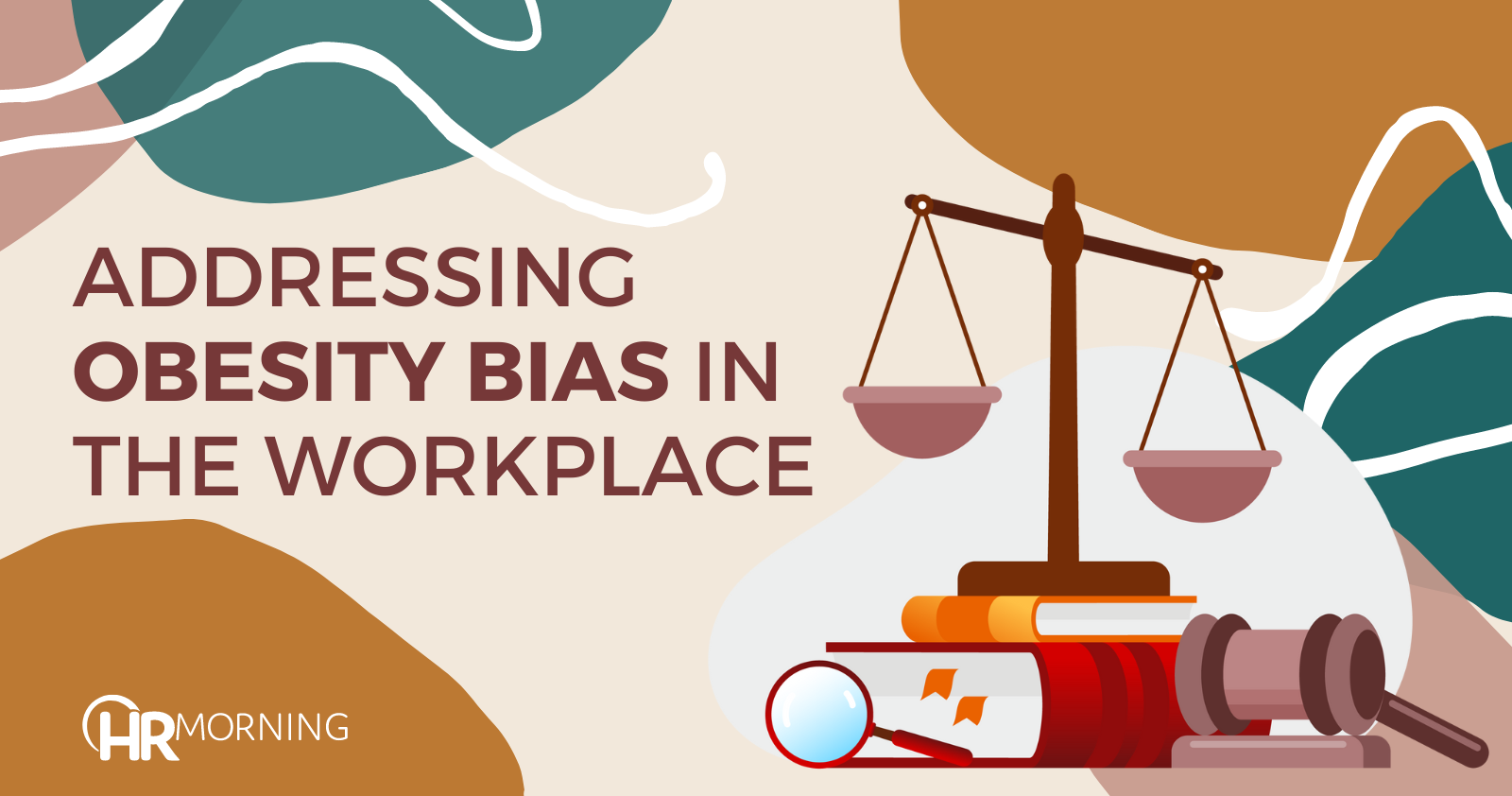Obesity and the ADA: Does alleged fat-shaming at work prove discrimination?

Does obesity count as a disability protected under the law? That’s the question a Connecticut court recently faced.
An employee sued his employer alleging he was discriminated against because he was “perceived as” being disabled due to his weight. Here’s what happened, according to his complaint:
The employee worked at the State Department of Correction and was selected to try out for the Connecticut Department of Correctional Emergency Response Team, more commonly known as CERT.
For context, CERT programs involve emergency response. On prison teams, CERT members are specially trained officers who are tasked with responding to prison riots, disturbances and other situations that are likely to involve uncooperative or violent prisoners.
Questionable methods: Obesity ‘jokes’ and fat-shaming
As part of the selection process, the plaintiff and fellow CERT candidates were required to participate in a basic training program that lasted several days. During the basic training program, the employee alleged that the CERT instructors “subjected him to public humiliation and hazing by fat-shaming him.” Among other things, he asserted:
- An instructor said to him: “[third] time trying out and you finally passed the sit-ups – too bad you are still fat and won’t make the team anyways.”
- He was filmed while instructors made fat jokes about him, such as poking his stomach and saying, “Your belly wants to make me throw up” – and the videos of the alleged harassment were later shared.
- In front of the class, instructors gave him the nickname “Marshmallow” because of his stomach and told the rest of the class to refer to him as Marshmallow. They also instructed him to put the nickname on his shirt.
- Instructors recorded him as they ordered him to eat a donut in front of the class and told him to “eat it faster” or he would have to leave.
- Instructors made fun of him when the candidates teamed up for the obstacle course drills. They allegedly laughed at him and said that no one wanted him on their team because he was fat.
Several days later, the employee was informed that he was being removed from the program due to his performance. However, he said that he passed the testing requirements. Ultimately, he was “denied the ability to become a member of the CERT and receive the benefits of the program.”
Was it discrimination?
The employee complained to his supervisor, who advised him to file an incident report. He did so – and then went on to file a lawsuit that alleged he was discriminated against because he was perceived as being impaired or disabled due to his weight. His complaint alleged violations of the Americans with Disabilities Act (ADA) and analogous state law – the Connecticut Fair Employment Practices Act.
First, the court dismissed the ADA claim on a technicality. The complaint specifically alleged a violation under Title II of the ADA, but “Title I of the ADA is the exclusive remedy for employment disability discrimination claims,” the court explained. As such, it dismissed the ADA claim.
Then it turned to the state law claim.
The state law at issue here prohibits employment discrimination and harassment because of an “individual’s race, color, religious creed, age, sex, gender identity or expression, marital status, national origin, ancestry, present or past history of mental disability, intellectual disability, learning disability, physical disability, including, but not limited to, blindness or status as a veteran.” It also provides protections for perceived physical disabilities. But the statute doesn’t specifically mention weight-related protections, the court noted.
The court examined state case law and determined that “there are no Connecticut Appellate or Supreme Court cases that have held that being perceived as overweight or obese constitutes a physical disability under the Act.” As a result, the court found that “being overweight or obese or perceived as such is not covered” under the law.
To support its finding, the court pointed out that the Second Circuit has looked at the issue of obesity under the ADA and found that it isn’t “a covered physical disability or impairment unless it is the result of an underlying physiological disorder or condition.” Simply put, obesity alone, without an underlying disorder, “is not an impairment but a physical characteristic, like eye color or height.”
The employee failed to allege a perceived disability recognized under state law, so that claim also failed. The court granted the employer’s motion to dismiss in its entirety.
Heads up, HR: Size discrimination is gaining momentum
You’ve probably heard that old adage: Just because you can doesn’t mean you should.
The allegations in this complaint, if true, are alarming. Anyone in HR who received such complaints from an employee would rightfully have concerns about microaggressions, harassment and a toxic workplace. Some training would definitely be in order.
Obviously, the employer dodged a bullet here. It was able to get the case tossed quickly because this particular state law does not recognize weight as a protected class – but that’s not the case everywhere.
If you haven’t heard, a new wave of discrimination at work includes weight, height and level of attractiveness, according to researchers.
And new laws aim to help prevent that bias. The latest example? New York City recently passed legislation banning discrimination based on employees’ height and weight.
And New York isn’t the only city that has put the kibosh on size discrimination. For example, San Francisco, the District of Columbia and Madison, Wisconsin, have passed ordinances that prohibit discrimination based on weight and physical appearance. And it’s not just happening at local levels.
Currently, Michigan is the only state that has banned body size discrimination. However, state legislatures in Massachusetts, New York, New Jersey and Vermont are considering pending legislation that would prohibit weight discrimination.
Madden v. State of Connecticut Department of Correction, No. HHD CV 22-6157025S, 2023 WL 3717992 (Conn. Super. Ct. 5/25/23).


